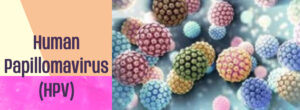Men’s Sexual Health
Men’s sexual health is a crucial aspect of overall well-being, yet many men are hesitant to seek care when issues arise. Conditions such as erectile dysfunction, low testosterone, and infertility affect many, but the stigma surrounding these topics often prevents men from discussing them openly. Often, traditional notions of masculinity emphasize toughness and invulnerability, leading men to feel shame or embarrassment about admitting to sexual health problems. Fear of judgment or being perceived as “less manly” can deter them from seeking medical help. Additionally, a lack of awareness about the treatability of many sexual health issues keeps men from reaching out for support.
From various studies in the general population and primary care, around 15-20% of men describe some sort of sexual problem. The proportion of men who actually seek help is unknown, and the number of men who experience a sexual health problem is likely higher. For many men it feels difficult to seek care, and men may feel hesitant or seek care disguised in terms of another complaint. It’s critical to begin to break the silence and normalize regular sexual health care for men.
It’s important for men to seek out care for the following issues:
- STD and HIV testing and treatment
- PrEP and PEP (medicines to help prevent HIV)
- Testicular cancer screening
- Prostate cancer screening
- Vasectomy (sterilization) services
- Condoms
- Erectile dysfunction exam, treatment, education, and referrals
- Premature ejaculation exam, treatment, education, and referrals
- Transgender health services, including hormone replacement therapy (HRT)
- Sexual health, family life, and parenting information
- Infertility screening and treatment referral
- Jock itch testing and treatment
- UTI testing and treatment
- Other sexual and reproductive health service
Can Men Get HPV?
We often associate the Human Papillomavirus (HPV) with causing cancer and how to prevent it; but it often revolves around women and cervical cancer. What about HPV and cancer caused by HPV in men? Let’s take a deeper dive into this concept.
What is HPV?
Human Papillomavirus is a group of viruses that can cause genital warts and cancers. The virus is highly contagious and affects the skin and moist membranes of the body such as the cervix, anus, mouth, and throat. It is primarily spread through skin-to-skin contact; however, you do not have to have sexual intercourse to catch HPV. The virus can be transmitted through touching or genital to genital contact, oral or anal sex.
Is HPV curable?
Unfortunately, there is not a cure for HPV infections. Even though the majority of cases will be cleared by your immune system and not turn into genital warts, precancer or cancer, it is still so important to take HPV and your health seriously. HPV causes about 37,800 new cases of HPV related cancers in the US along with genital warts and laryngeal papillomas (benign tumors to grow in the voice box and respiratory tract).
How do we screen for HPV?
Women get PAP smears to check for the HPV virus in the vagina and cervix but unfortunately there are no routine screening guidelines for men. The most important thing for men and boys to do is consult your doctor immediately if you notice any changes on your genitals or anus such as growths, blisters, warts or other skin abnormalities. You should also see a doctor if you notice any growths, blisters or warts in your mouth or throat. Unfortunately, research is still being done on HPV tests for body parts besides the cervix. There are some oral tests that are not FDA approved but still widely used and anal
HPV testing is often ordered for high-risk individuals. Research is still being done for penile testing for HPV. Important to note; there are no routine blood test to detect HPV to check for your “HPV status.” Only swabs of infected areas are deemed an accurate test.
Cancer causing part of HPV:
There are over 200 strains of HPV. Of those strains, around 13 carry the ability to cause cancer. The strains which are most associated with HPV-related cancers are HPV-16 and HPV-18. For those whose body does not pass the virus, the HPV lies dormant in their bodies and resurfaces as an HPV related cancer decades later.
HPV is the causal agent of:
- 70% of cancer of the head and neck
- 91% of anal cancers
- 63% of penile cancers
- 91% of cervical cancers
- 75% of vaginal cancers
- 70% of vulva cancers
As you can see 3 of these can affect men…. Is there only bad news? NO! There is a vaccine to help fight against HPV-related cancers! It is recommended that all children when turning 11-12 years old get the vaccine since it has been proven to be most effective when the two doses are given at younger ages. Don’t fret though if you didn’t get the vaccine when you were younger, you may still benefit from taking it. Men can still receive a 3-dose regimen of the HPV vaccine up to the age of 45 with guidance from their doctor or friendly public health nurse.

